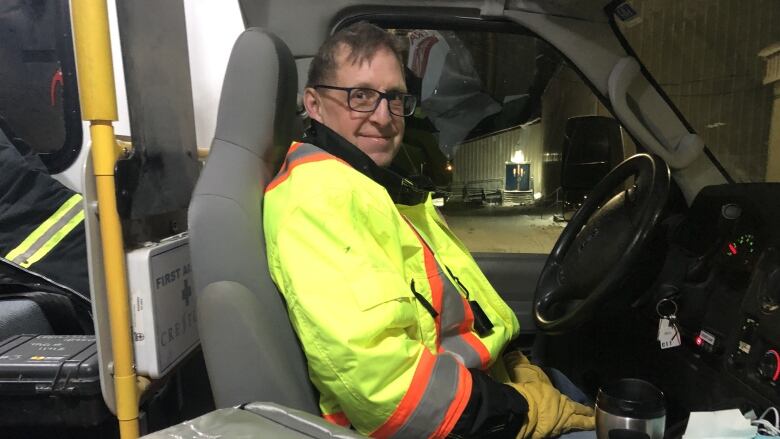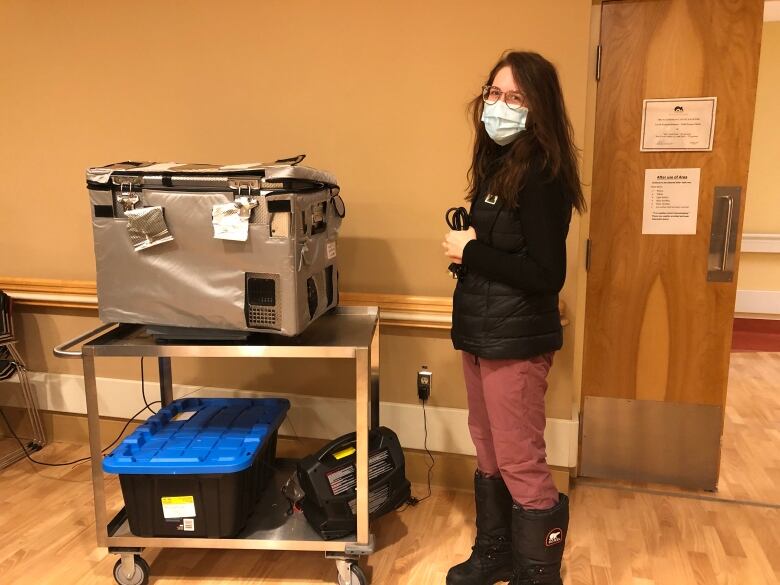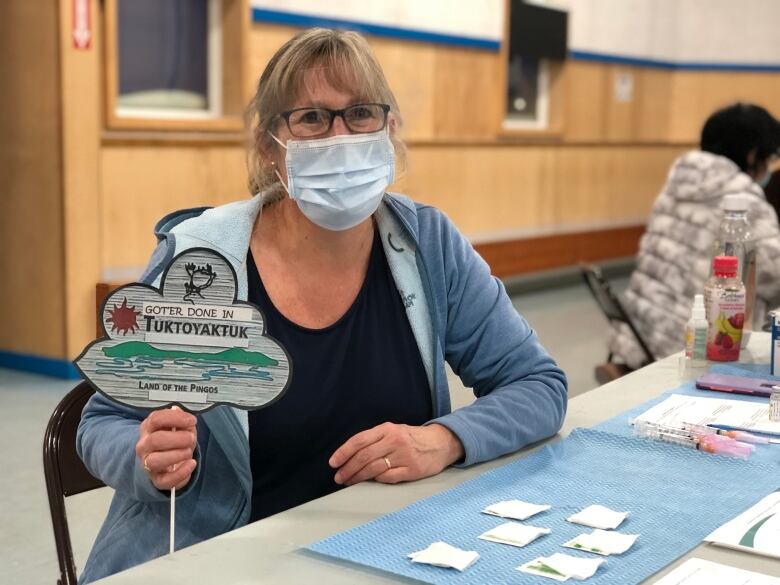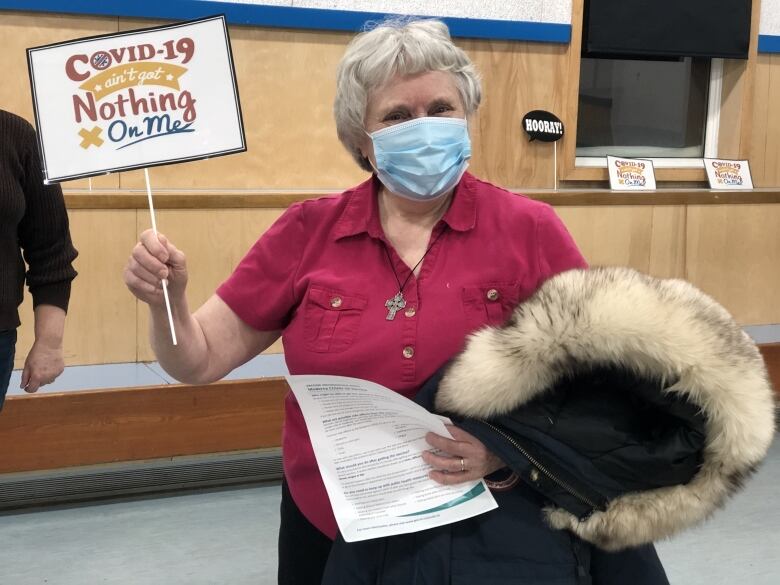How the COVID-19 vaccine gets from the pharmacy to the people of the Beaufort Delta
The journey of workers who brought COVID-19 vaccines to N.W.T.'s northernmost communities

At about 6 a.m. ontravel day last week,one of the vaccination teams in the Beaufort Delta regionprepared for a three-day clinic in Tuktoyaktuk, N.W.T.
But before the team headsout, it needs to fill up a portable freezer, at a temperature of -20 C, with the Moderna COVID-19 vaccine.
"That's Aidan's baby for two weeks," laughs nurse Heather Redshaw, who is part of the vaccination team heading to the hamlet.
Her partner in this experience is Aidan Healy, one of the core logisticians with the COVID-19 immunization team.
Healy's duties involve making sure the freezer stays around -20 C at all times, and that the vaccines are at the proper temperature.
"I'm pretty much the safe-guarder of the vaccine, so when we travel to communities I'm the one bringing the cooler," said Healy.

Redshaw explains that there are two teams that have been making their way through the Northwest Territories' Beaufort Delta region.
Redshaw and Healy have already gone to Paulatuk, Sachs Harbor and Aklavik.
Tuktoykatuk is their final destination for the first round of vaccinations.
'We want to make sure we get it here safe'
The duo spend the next couple hours loading up the 54-kilogram freezer with the vaccines they may need for three days.
"We want to make sure we get it here safe, and that it's effective for the people," said Redshaw.
They safely put 61 vials of the vaccine, which contain a total of 610 doses, into the freezer at the Inuvik Regional Hospital's pharmacy, which is where all the vaccines in the region are stored.
Then they hit the road in a bus that is normally used for the hospital's elder day program. For the last couple of weeks however, it's been used to help bring vaccines, support team members and equipment to the airport or directly to communities.

The person in charge of driving the bus is Chris Balla, the Beaufort Delta regional operations manager for Northwest Territories Health and Social Services Authority.
Balla's also part of the immunization response team, and is responsible for making sure the vaccines and the vaccine team make it to their final destination.
Team arrives at Tuktoyaktuk's Kitti Hall
When the team arrives at Kitti Hall in Tuktoyaktuk,they start thawing out some of the vaccines that will be used that day.
Healy is making sure the room is at the right temperature for the thawed vaccines between 15 and 25 C.
At one point Healy opens up the door to make the room a bit cooler.
Healy also helps with the database once the clinic begins.

Both Healy and Redshaw are from Yellowknife, but everyone else helping with the vaccine clinics, including the nurses, are from communities in the region.
At about 10:30 a.m., the team is ready to give residents their first shot.
Of the 274 Tuktoyaktuk residents that will receive doses on Friday, Sister Fay Trombley is the first.
"That's amazing," exclaims Trombley, while still in the chair after getting the vaccine. "You hardly feel anything."
Although their days are long, some can be up to 12 hours, both Healy and Redshaw say they feel privileged to be part of the team.
"I feel like I'm part of something bigger than myself," said Redshaw. "It's a little bit of hope on a really dark year for lots of people and people are hopeful it will get back to some type of a new normal and I'm excited to be part of it."












_(720p).jpg)


 OFFICIAL HD MUSIC VIDEO.jpg)
.jpg)



























































































